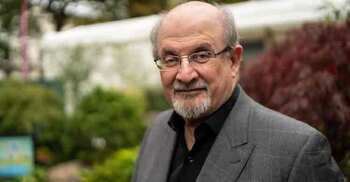It’s about time we take sleep seriously in today’s hectic life!

Sleep is part of our lives which we cannot do without. In fact, we spend 36 percent of our lives sleeping. Every living organism requires some time to sleep, to function properly.
We humans have always tried to win over sleep and the idea to work 24 hours a day has always intrigued mankind. Professor Russell Foster, notable neuroscientist and Senior Fellow at Brasenose College at the University of Oxford, disagrees with the above idea. He has conducted extensive research on sleep function of the body and has spent years understanding the circadian rhythms of the sleep-clock of the human body.
He says the right cells are required at the right time at the right place in the human body to support healthy sleep. Sleep further helps the human body to create cells that support important functions, such as memory, growth, metabolism, decision-making skills, immunity and tissue repair. He describes this exquisite bodily function in time and space as the “time structure for life”.
Russell Foster has come up with his new book, “Life Time: The New Science of the Body Clock, and How It Can Revolutionize Your Sleep and Health”. The book focuses on the fact that how our biology is governed by a 24-hour biological clock that advises us when is the best time to eat, sleep, think and undertake a myriad of other essential tasks.
Sleep is the topic that needs the maximum focus, especially in today’s hectic and busy lifestyle. Most of the urban youth in a country like India are excessively sleep-deprived because of a huge imbalance in work life. This deprivation is impacting the overall wellbeing of the individuals.
“Proteins, enzymes, fats, carbohydrates, hormones and other compounds have to be absorbed, broken down, metabolised and produced at a precise time for growth, reproduction, metabolism, movement, memory formation, defence and tissue repair.” - Professor Russell Foster
Changing attitude towards sleep
In recent times, people’s attitude towards sleep has changed manifold. Prof. Foster states that earlier sleep was considered a disease as people were involved in hardwork and manual labour. With a great change in the nature of jobs, a lot of mental exertion is required. Thus, sleep is considered a therapy and the positive effect of sleep can be felt over the body.
Light plays a role in sleep
Prof. Foster defines the human eye as the “organ of space and time”. Mammals are governed by a sleep cycle and the cycle is further controlled by natural light. Our sleep signals are controlled by the brain, which works in unison with the natural light. When it is dark outside, the brain signals the body to sleep. If we sync our sleep cycle with natural light, we can outperform and gain the maximum out of our body.
Sound is a big factor
There are many people who work in night shifts and are forced to catch up on their sleep during the day. However, they cannot get the same amount of rest as compared to the night’s sleep. It is because of the “sound” factor. There are certain unavoidable sounds during the day time that constantly signal the brain to stay awake. We get the best sleep during the night, when the body and mind are both at rest.
Source: The Statesman





